“Nakakadagdag ng takot (Covid-19 adds to the fear) of persons living with HIV,” said Anthony Louie David, a Filipino living with HIV.
According to the World Health Organization (WHO), “at present there is no evidence that the risk of infection or complications of COVID-19 is different among PLHIVs who are clinically and immunologically stable on antiretroviral treatment when compared with the general population.” WHO added that “it is unknown if the immunosuppression of HIV will put a person at greater risk for COVID-19.”
However, “until more is known, additional precautions for all people with advanced HIV or poorly controlled HIV, should be employed.” This is because “PLHIVs with advanced disease, those with low CD4 and high viral load and those who are not taking antiretroviral treatment have an increased risk of infections and related complications in general.”
And so for David, because those with weaker immune systems are at higher risk of getting infected with Covid-19, “andoon yung takot (the fear is there).”
Rogeselle Burdeos Monton, also a PLHIV and the research and development officer of the Culture and Arts Managers of the Philippines, said that there’s that “worry within yourself” that because one is immunocompromised, “you might end up being infected with another virus.”

ACCESS TO LIFE-SAVING MEDS
The fear – not just the lockdown – has been limiting.
David, for instance, hasn’t been out of his house for weeks now – e.g. other family members have to do the groceries for him.
David is also troubled that his supply of life-saving antiretroviral (ARV) medicines is about to run out. “My treatment hub is in the City of Manila, and I am now in Biñan City, Laguna (approximately 31 kilometers away).”
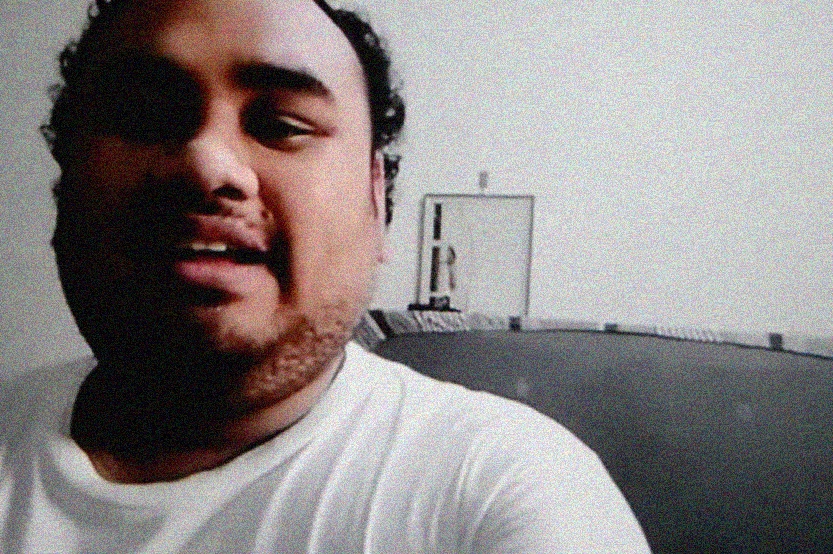
Living in a different local government unit (LGU) is also an issue because people from outside Metro Manila (where his treatment hub is) are barred from entering Metro Manila.
At least for Moses Myro Ayuha, another person living with HIV, “luckily, I have supplies until May.” But Ayuha said that there are “blood brothers” who are really having difficulty in accessing their ARVs.
The Department of Health (DOH) tried to remedy this issue.
In March, DOH released an advisory that recognizes that “this current situation poses challenges in accessing life-saving medications… which may result in treatment interruption”, so it is mandating treatment facilities to “exhaust all possible methods to ensure reliable access to PLHIVs to treatment without having to risk increased exposure to Covid-19 when accessing their medicines.”
Meaning: PLHIVs can get their supplies (while the lockdown is ongoing) in other hubs that are nearest to them; or have their ARVs delivered to them, among others.
Monton’s hub delivered his ARVs for him… but he had to pay for the courier/shipping fee on his own, which may be an issue for those who do not have money to do so.
Monton also noted that there are also confusions – e.g. the process of accessing ARVs in hubs not yours, with policies supposedly announced by the DOH causing confusion instead of clarity.
And so Monton said that some end up “borrowing meds.”
David noted how non-government organizations (NGOs) and community-based organizations (CBOs) are stepping up. For instance, there are those that deliver the ARVs to those who can’t leave their houses – e.g. #AwraSafely has some guide for PLHIVs during the time of Covid-19.
Helping is also done to those who have lost their means of living – e.g. the AIDS Society of the Philippines (ASP) gives out some amount to HIV-positive mothers and/or their kids, as well as healthcare providers who are rendering HIV-related services during the Covid-19 lockdown period.
This is particularly helpful to those “na walang kakayanang bumili ng pagkain nila ngayong may lockdown dahil wala ring trabaho ngayon,” David said.
Sadly – and this is worth highlighting – many of the existing solutions are available for PLHIVs in metropolitan areas, such as Metro Manila, where many NGOs and CBOs operate. Outside of Metro Manila, in the provinces, already problematic access to ARVs are worsened by the Covid-19 lockdown. Monton knows of a PLHIV in Laguna, for instance, who had to spend an entire day just to get through a series of checkpoints to access the nearest treatment hub to him; and then when he got there, “siguro nagmakaawa (maybe he begged) just to be given ARVs.”
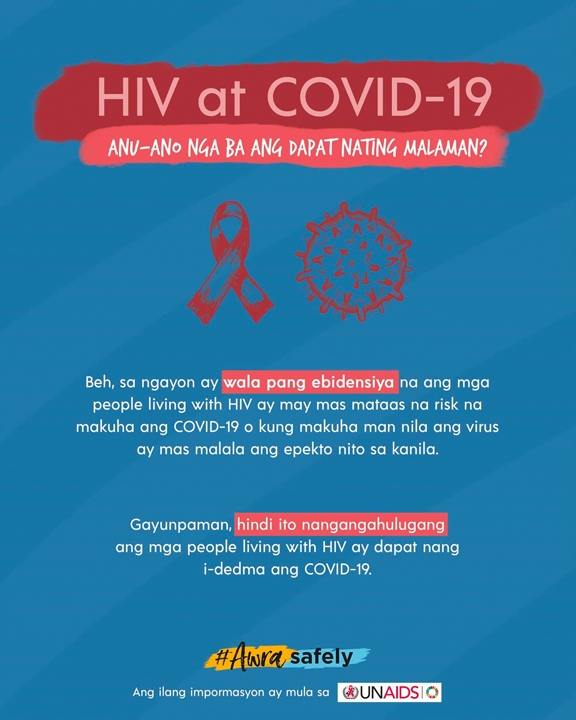

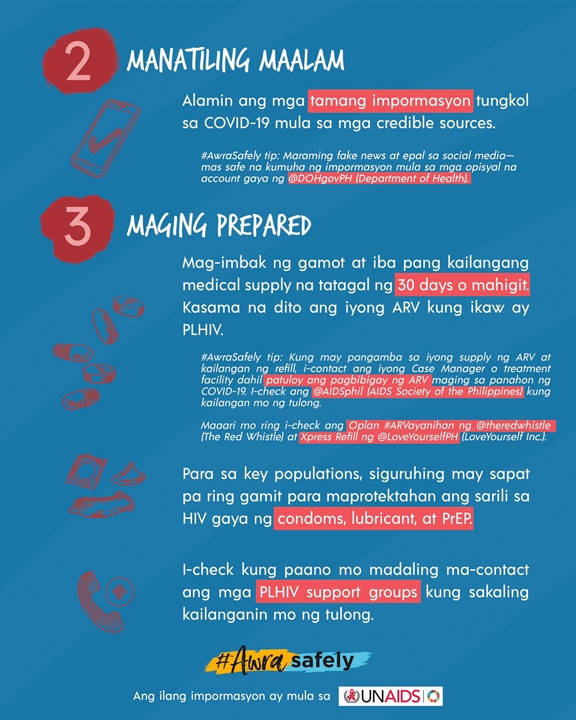
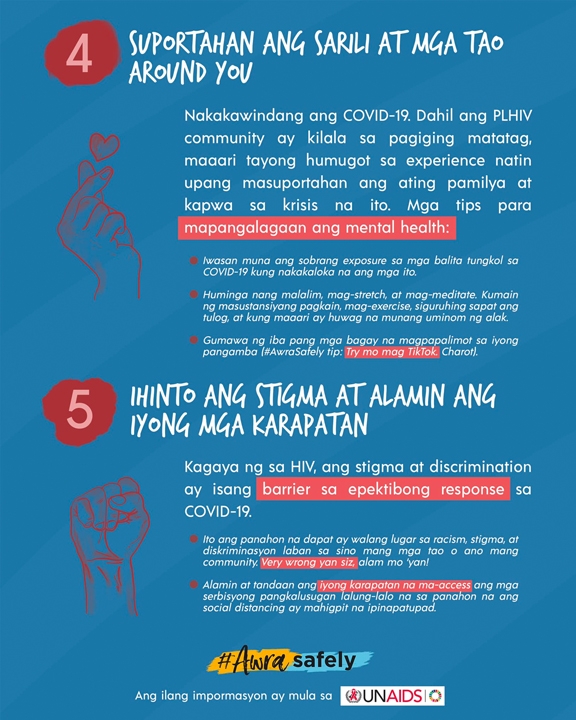
WORK WOES
Like the rest of the population, the livelihood of PLHIVs are just-as-affected by the Covid-19 lockdown.
Ayuha, for one, said that – at least where he’s staying, a halfway house for PLHIVs – they now rely on donations of food packs. “Nakakaraos din (We get by somehow),” he said.
But Ayuha said that “I am unable to do (what I usually do daily),” including giving HIV-related lectures (while working for non-government organizations). “Nabago talaga dahil di ka nga makalabas (This really changed because you can’t go out).”
David is the same; with his income usually sourced from giving HIV-related talks. And with gatherings cancelled because of the lockdown, “walang maasahan kundi pamilya ko lang (I only rely on my family).”
Monton, meanwhile, is a freelance worker, so his earnings are also affected. He may be luckier than most because he has savings; but he knows of other PLHIVs who – even now – are already worrying where to source the money for the incoming months’ bills (e.g. rent, utilities, et cetera).
Monton actually hopes that that the government’s financial support be made more inclusive. “When it comes to evaluating people who are currently financially challenged.” At the end of the day, he added, even PLHIVs are “also tax-payers.”
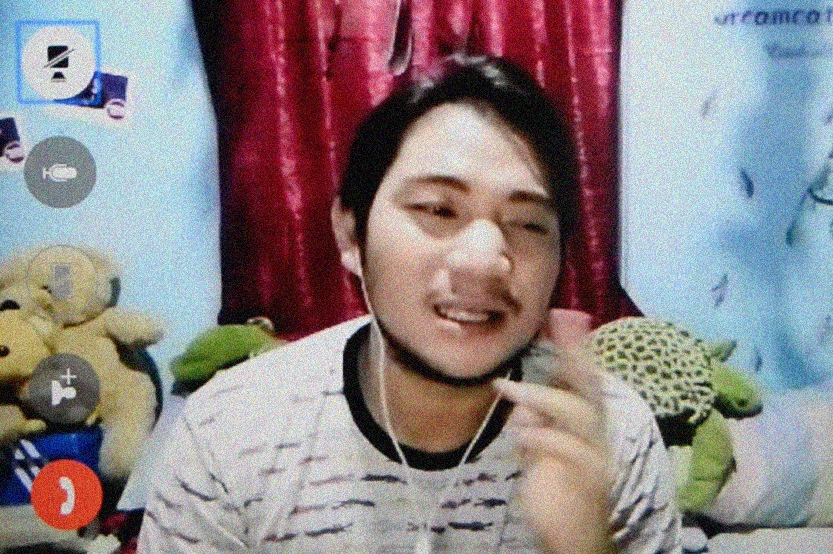
FOCUS ON SELF-CARE
David said that there are other issues affecting PLHIVs now highlighted by Covid-19 – e.g. depression. To deal with this, he recommends “keeping yourself busy.”
So David said: “Better your immune system because Covid-19 isn’t just going to be here now. Even without the lockdown, Covid-19 will still be there. So gain strength so that when the lockdown is lifted and we’re finally allowed to go out, we know we’d still be safe because we’ve properly prepared.”
Monton gives three practical tips.
First, with being idle affecting mental health, along with the fear of getting Covid-19 and accessing ARVs, “learn how to divert your attention,” he said. “Your fears are valid, but focus on your well-being as a PLHIV.”
Second, take precautions – e.g. wear face mask when going out, disinfect particularly before touching the face, et cetera.
And third, “magdasal (pray),” he said. Maybe not even because one is religious, but for “peace of mind… somehow it helps.”
For Ayuha, “PLHIVs should take precautionary measures… particularly if they go out.” Practically, “wear mask,” he said, though more importantly, “better your immune system… and huwag praning (stop panicking).”





























































